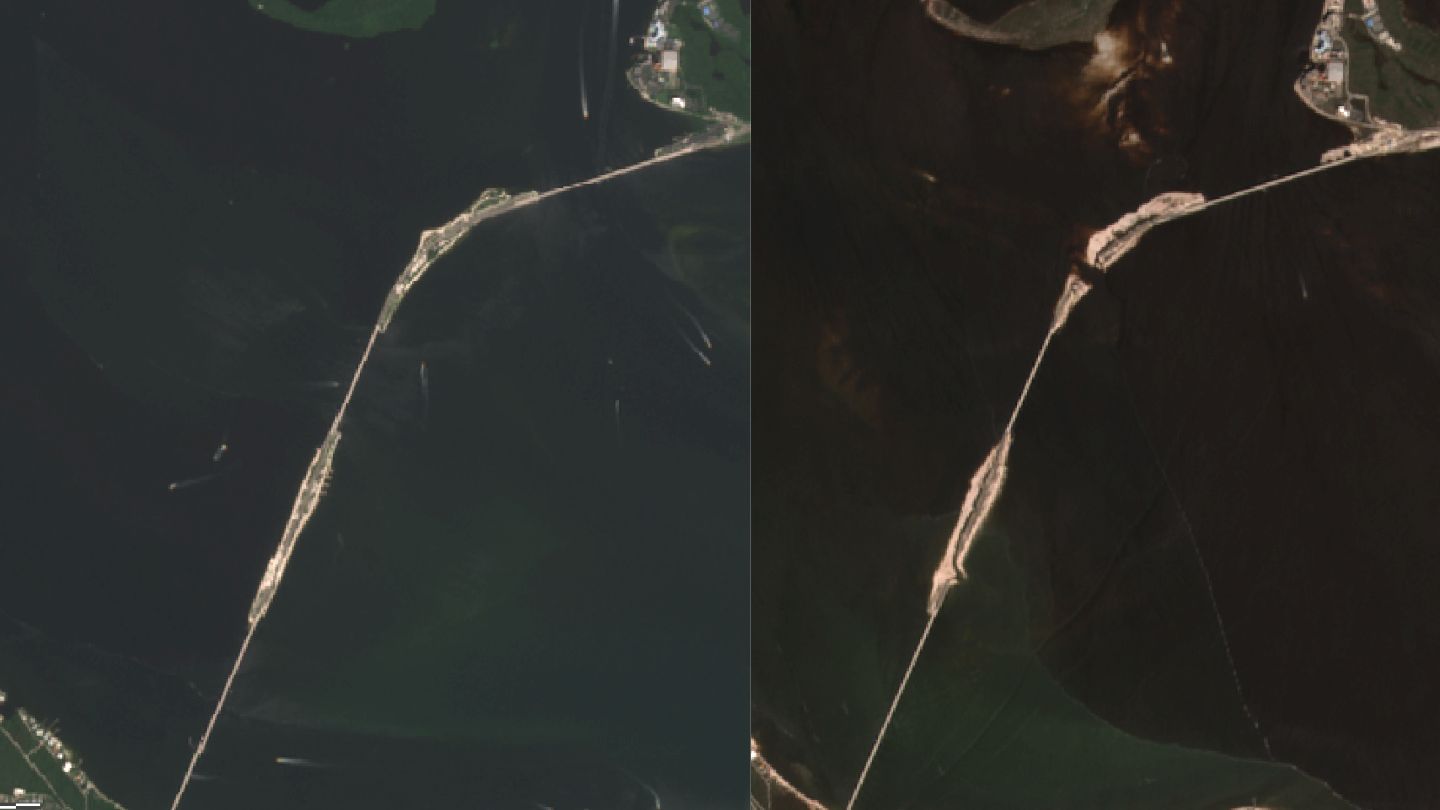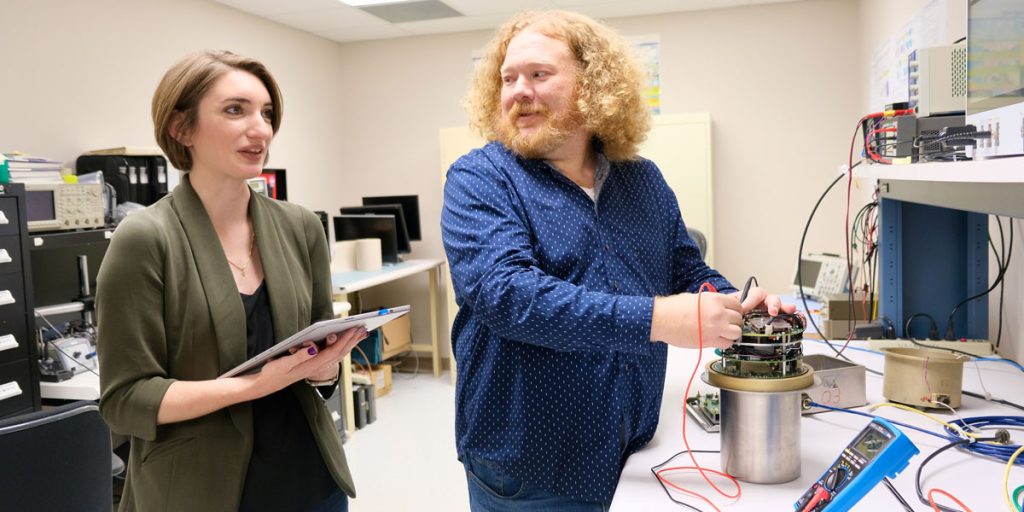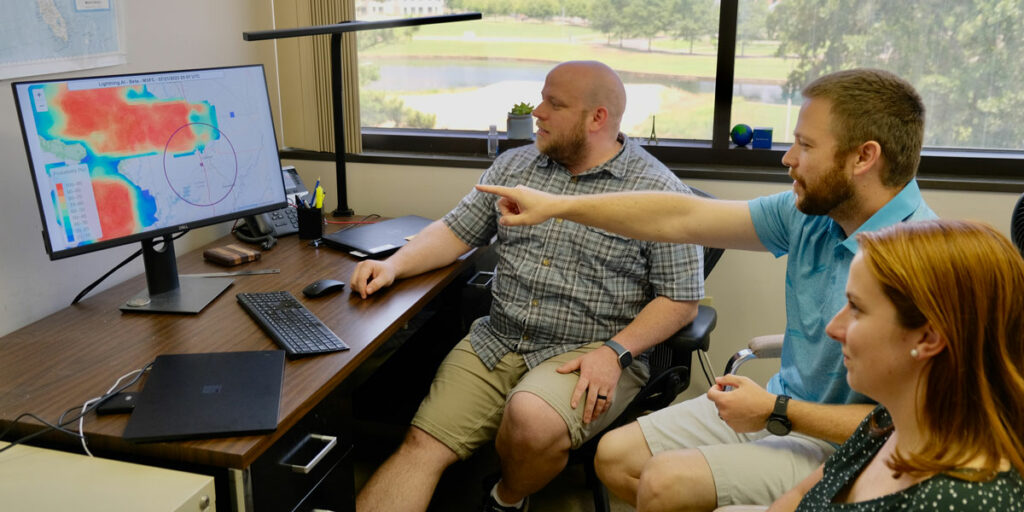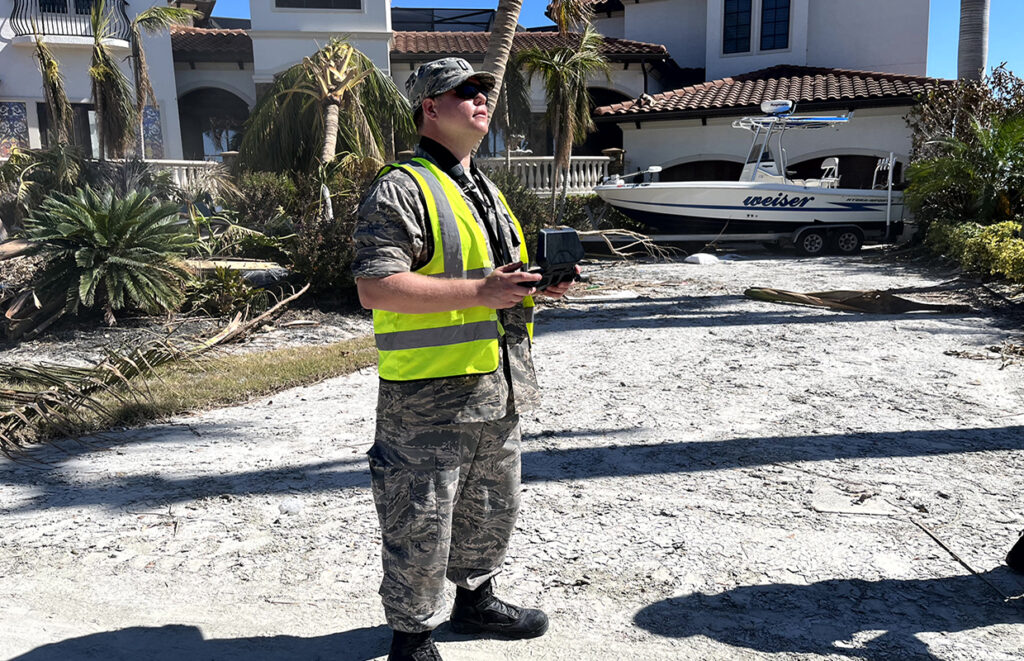HUNTSVILLE — Florida’s recovery response to Hurricane Ian has been bolstered by two University of Alabama in Huntsville Earth System Science Center research associates.
Working from Cramer Hall at UAH, Ronan Lucey and Kaylee Sharp have been processing data from NASA and European Space Agency satellites to create distinct composites used for response efforts.

“We are involved with pretty much every response that has to do with hurricanes or storms,” said Lucey, UAH’s lead research associate for NASA’s Disasters program.
The composites are continuously evaluated by the Federal Emergency Management Agency. The data provides situational awareness of flooding and storm damage across the state of Florida to assist FEMA and its partners.
One composite makes use of the reflective properties of water by enhancing them to highlight potentially flooded areas. Another composite, True Color Imagery, brightens the color of geographic features so individuals and agencies can better detect storm damage.
Through a cooperative agreement with NASA’s Earth Science Applied Sciences Disasters program, UAH research associates process remote sensing data for numerous types of hydrometeorological events.
Lucey said the composites developed by him and Sharp are highly regarded by FEMA; NASA is one of the few agencies that provide free, openly available products to FEMA.
“If there are gaps FEMA can’t afford, or gaps in the flight lines from the private sector, that’s a place often where NASA products can fill in,” Lucey said.











